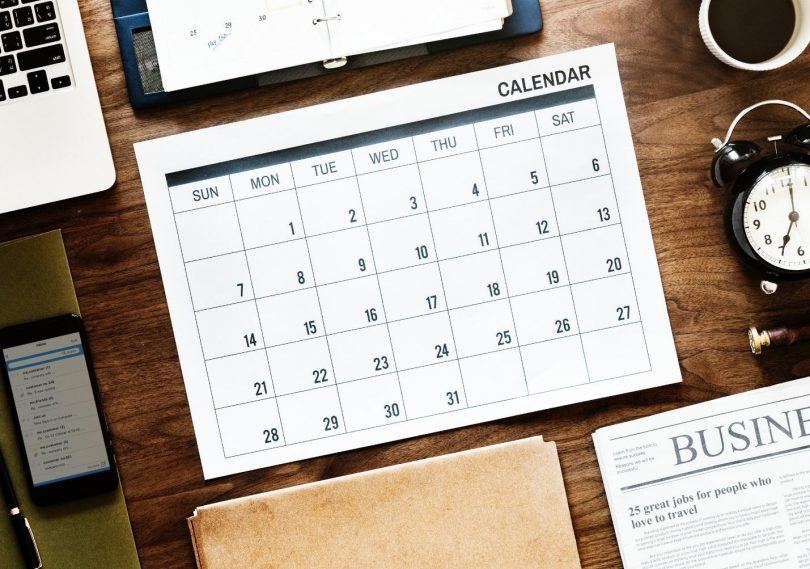If you’ve ever reached the end of a workday only to feel that you got nothing done, you’re not alone. Several studies show Americans work more hours on average per year than workers in France, England, and even Japan. But are those hours productive? Here are ten ways to help you get the most out of your day.
Know where your time is going
Just as you might track what you eat when you wish to lose weight or track spending before creating a budget, if you want to utilize the hours in your day better, you need to know where they’re going. If you work on a computer a lot, you might try a tool such as RescueTime. Even simpler, keep a log of what you’re doing for a week. Once you’ve done that, it enables you to identify the time wasters in your day.
As mentioned, utilize tools to keep you on track. This includes a calendar. A lot of people prefer online calendars such as Google Calendar, which can be used across multiple devices. However, there are still plenty of hand-written planner options for people who need to see everything in hard copy.
Make the Most of your mornings
Surveys of the most successful people show they have something in common: the majority get up early. While some people use that time to plan their day, many time management experts recommend utilizing the start of your day for tackling the toughest projects or those requiring the most concentration. That’s because we are generally at our freshest, mentally and physically, early in the day. And if you are a working student with a part time job, this is also one of the best ways to avoid workplace injuries. You never know when you’ll make a mistake that could cost you a bad grade, injury, or accident. Avoid simple mistakes by getting some rest.
Create a to-do list
Not only should you list what you wish to accomplish, you then need to prioritize your tasks. It’s a good idea to breakdown larger projects into manageable parts you can achieve in a day. Experts also recommend that you have no more than five items on your list.
Set time limits and deadlines
One of the first things to remember is to be realistic about what you can accomplish and how long it will take. If you can set deadlines a few days ahead of time, that also allows you to finish any other tasks that might get in the way. Be careful about sticking to deadlines. For example, returning calls and answering emails could easily consume a large portion of your day. Set a strict time limit and keep it.
Stop trying to do too many things at once
We’ve all heard people say how wonderful they are at multi-tasking, but studies show this just isn’t true. Trying to accomplish multiple activities simultaneously prevents people from deep concentration on any one event. What happens, in reality, is that it takes us twice as long to perform a task as it would if we had given it our sole attention.
Learn to Delegate
If a task is something that an employee or co-worker could do as well or better, then have them do it. It is impossible to do everything and do it well. If you choose to delegate, though, you should still follow-up to make sure something is completed.
Bundle similar tasks together
The two obvious ones that come to mind are dealing with email and traditional correspondence. These could also be allotted time jointly with returning phone calls. The rationale is that similar tasks don’t require your brain to switch gears, so they are easier to accomplish together.
Organize your work space
How many times have you found yourself unable to complete a task because you couldn’t find something you needed? No matter the work you’re doing, it is a good idea to have a system for where you store files, tools, and other materials. Get into the habit of putting everything back where it belongs. This might be something you do as you work, or a task you set time aside to do at the beginning or end of your workday.
Don’t over schedule your time
Remember that you need to allow additional time to get to and from a meeting or even time to reflect or summarize what you’ve already accomplished.
Conclusion
Becoming more productive is a matter of learning how to manage the time you have. The first thing to realize is that we all have the same amount of time. Twenty-Four hours a day, seven days a week. So we can’t really manage time as much as alter how we’re using it. The bottom line is modifying our behavior to fit a schedule.
For more great tips on all things college, check out the other blogs at College Basics.







